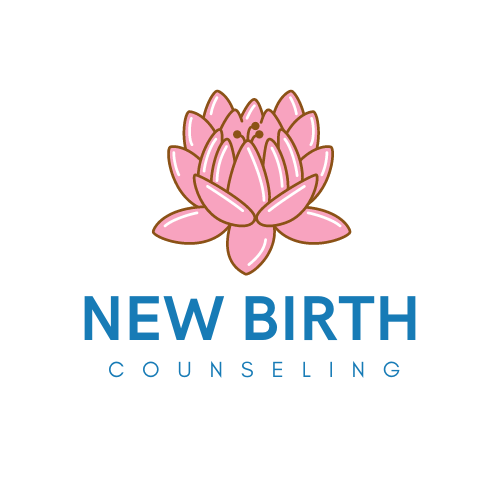The Gut-Brain Connection: Why Your Emotions Might Start in Your Stomach
Introduction:
Have you ever felt “butterflies” in your stomach before a big event? Or noticed your appetite vanish when you’re anxious or upset? These common experiences aren’t just figures of speech—they’re signs of a powerful, two-way communication system between your gut and your brain. At New Birth Family Counseling, we believe in a holistic approach to mental health, recognizing that emotional well-being is deeply intertwined with physical health. In this blog post, we’ll explore the fascinating science behind the gut-brain connection, how your emotions can start in your stomach, and what you can do to nurture both your mind and your body.
Understanding the Gut-Brain Axis
The gut-brain axis is a complex communication network that links your digestive system (the “gut”) with your central nervous system (the “brain”). This connection is facilitated by the vagus nerve, a major nerve running from the brainstem to the abdomen, as well as through hormones and immune system signals. Scientists often refer to the gut as the “second brain” because it contains millions of neurons and produces many of the same neurotransmitters—like serotonin and dopamine—that influence mood and emotions. When your gut is healthy, it can send positive signals to your brain, supporting emotional balance. Conversely, gut problems can contribute to anxiety, depression, and stress.
The Role of Gut Microbiome in Emotional Health
Your gut is home to trillions of bacteria, fungi, and other microorganisms collectively known as the gut microbiome. These tiny inhabitants play a crucial role in digesting food, regulating your immune system, and—remarkably—affecting your mood. Research has shown that a diverse and balanced microbiome can help reduce symptoms of anxiety and depression, while an imbalanced microbiome (dysbiosis) may contribute to emotional struggles. The gut microbiome communicates with the brain through chemical messengers, influencing how we feel and respond to stress.
How Stress Impacts Your Digestive System
Chronic stress can wreak havoc on your digestive system, leading to issues like stomachaches, nausea, constipation, or diarrhea. When you’re under stress, your body’s “fight or flight” response diverts energy away from digestion, making it harder for your gut to function properly. This can create a cycle where stress worsens gut symptoms, and gut discomfort increases emotional distress. At New Birth Family Counseling, we often see how addressing stress and emotional triggers can lead to significant improvements in both mental and digestive health.
Recognizing the Signs of Gut-Brain Imbalance
It can be challenging to know whether your emotional struggles are linked to your gut health, but certain signs may point to a gut-brain imbalance. These include frequent digestive issues (such as bloating, gas, or irregular bowel movements), unexplained fatigue, mood swings, increased anxiety, or difficulty concentrating. If you notice these symptoms, it’s important to approach your health holistically—considering both emotional and physical factors.
Nurturing the Gut-Brain Connection
The good news is that you can support your gut-brain axis with simple lifestyle changes. Eating a balanced, fiber-rich diet with plenty of fruits, vegetables, and fermented foods (like yogurt, kefir, and sauerkraut) can promote a healthy microbiome. Regular exercise, adequate sleep, and stress-reducing activities like mindfulness, meditation, or deep breathing can also strengthen the gut-brain connection. At New Birth Family Counseling, we encourage our clients to view self-care as an essential part of emotional and physical well-being.
The Role of Therapy in Healing the Gut-Brain Connection
Therapy can play a powerful role in healing the gut-brain connection, especially for those struggling with chronic stress, anxiety, or trauma. By exploring the emotional roots of physical symptoms, clients can gain insight into how their thoughts and feelings affect their bodies. Holistic couples counseling, like the services offered at New Birth Family Counseling, can also help partners support each other in making healthy lifestyle changes, reducing relationship stress, and building resilience together.
When to Seek Professional Support
If you’re experiencing persistent digestive issues alongside emotional distress, it may be time to seek professional support. A therapist can help you identify patterns, manage stress, and develop coping strategies, while a healthcare provider can assess your gut health and recommend appropriate treatments. Remember, you don’t have to navigate this journey alone—compassionate, holistic care is available.
Conclusion:
The gut-brain connection is a powerful reminder that our minds and bodies are deeply linked. By understanding and nurturing this relationship, you can take meaningful steps toward greater emotional and physical well-being. At New Birth Family Counseling, we’re here to support you on your holistic healing journey—because your feelings matter, and so does your health.

